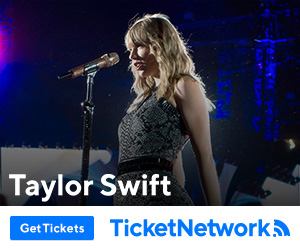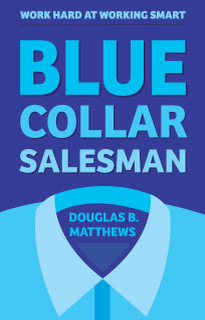
Cornish Hurling is a unique and ancient sport that has captivated enthusiasts for centuries. Known for its physicality, tradition, and deeply rooted cultural significance, it offers a glimpse into Cornwall’s vibrant history. Despite its local origins, Cornish Hurling has gained interest among sports historians and cultural enthusiasts worldwide. This blog delves into its origin, evolution, and continued relevance in today’s world.
The Origins and History of Cornish Hurling
The sport of Cornish Hurling dates back to at least the medieval period. Historical records suggest that it was played as early as the 13th century, though its origins may be even older. Rooted in Celtic traditions, it is believed to have connections with ancient rites of passage and community bonding activities.
Initially, Cornish Hurling served as both a sport and a form of conflict resolution. Villages and parishes would engage in matches to settle disputes or establish dominance. Unlike modern organized sports, early hurling games were highly chaotic. The playing area often spanned miles, and participants included almost everyone in the community. The “silver ball,” used in Cornish Hurling, symbolized honor and local pride. Crafted from sterling silver and engraved with intricate designs, this ball became a cherished artifact of the game.
During the Tudor era, Cornish Hurling faced challenges. Authorities attempted to suppress the sport, associating it with unruly behavior and public disorder. However, it persisted, particularly in rural areas where local customs held strong. By the 19th century, it evolved into a more organized activity, though it remained steeped in tradition.
The Global Popularity of Cornish Hurling
While Cornish Hurling remains primarily a Cornish phenomenon, its unique qualities have sparked global interest. Visitors to Cornwall often witness the sport during annual matches, particularly in towns like St. Columb Major. These events attract tourists eager to experience Cornwall’s cultural heritage firsthand.
Outside the United Kingdom, Cornish Hurling is celebrated by Cornish expatriate communities. In countries like Australia, Canada, and the United States, festivals and cultural gatherings sometimes include demonstrations of the sport. These efforts aim to preserve Cornish identity and introduce the game to new audiences.
However, Cornish Hurling has not achieved the same level of international popularity as sports like rugby or cricket. Its localized nature and reliance on tradition make it challenging to export in its authentic form. Despite this, the sport’s cultural significance ensures it remains a point of pride for Cornish communities worldwide.
Amateur Cornish Hurling: Youth and Schools
Amateur Cornish Hurling thrives in local communities, where it is nurtured through schools and youth programs. Children are introduced to the sport at an early age, often through informal games or community events. Schools in Cornwall sometimes include hurling as part of physical education programs, teaching students the rules and techniques.
Youth tournaments play a crucial role in maintaining the sport’s popularity. These events provide young players with an opportunity to showcase their skills and learn from seasoned players. Local clubs often sponsor these tournaments, ensuring that the sport remains accessible to all.
Community involvement is another vital aspect of amateur hurling. Matches are organized during festivals and public holidays, drawing large crowds. These gatherings serve as both sporting events and social occasions, reinforcing the community’s connection to its heritage.
Professional Leagues and Global Associations
Unlike many other sports, Cornish Hurling does not have a formal professional league. Instead, it is deeply rooted in community traditions and played primarily for the love of the game. However, efforts to organize the sport on a larger scale have gained momentum in recent years.
The St. Columb Major Hurling Match is perhaps the most well-known annual event. Held on Shrove Tuesday and the Saturday following, it features intense competition between the “Townsmen” and the “Countrymen.” This match attracts significant attention, both locally and from visitors.
Efforts to create a more structured framework for the sport include forming associations that document its history, promote its practice, and support local clubs. These associations often collaborate with cultural organizations to highlight Cornish Hurling at festivals and exhibitions.
Internationally, Cornish expatriate groups occasionally organize informal matches or demonstrations. These events aim to introduce the sport to new audiences and maintain a connection to Cornwall’s cultural traditions. While these efforts are relatively small in scale, they highlight the potential for greater global interest in Cornish Hurling.
The Political and Social Significance of Cornish Hurling
Cornish Hurling holds profound political and social importance. As a symbol of Cornish identity, it reinforces the region’s distinct cultural heritage. Cornwall has long maintained a unique identity within the United Kingdom, with its own language, traditions, and history. The sport’s preservation reflects a broader effort to protect and celebrate this heritage.
Socially, Cornish Hurling fosters a sense of community and belonging. Matches bring together people from all walks of life, creating opportunities for intergenerational bonding. The sport’s inclusivity ensures that everyone, regardless of age or background, can participate or contribute in some way.
Politically, Cornish Hurling has occasionally been a point of contention. Efforts to regulate or suppress the sport in the past were viewed as attempts to undermine Cornish culture. Today, its continued practice is celebrated as a form of cultural resilience and pride.
The Rules of Cornish Hurling
Cornish Hurling is governed by a unique set of rules that distinguish it from other sports. The game revolves around the “silver ball,” which players aim to carry to a specific goal. The rules vary slightly depending on the match, but certain principles remain consistent.
The game begins when the silver ball is thrown into the air. Players then scramble to gain possession. Physical contact is allowed, making the game highly dynamic and demanding. The playing area often spans the entire town or village, with goals located miles apart.
To score, a player must carry the ball to the designated goal or out of bounds in a specific direction. Matches are timed, with a fixed duration determined by the organizers. The team or individual with the ball at the end of the game is declared the winner.
Fair play is emphasized, and unsportsmanlike behavior is discouraged. While the sport is physically intense, it also relies on strategy and teamwork. Players must navigate challenging terrain, including rivers, fields, and streets, to achieve their objectives.
Conclusion
Cornish Hurling is more than just a sport; it is a living tradition that embodies the spirit of Cornwall. Its rich history, cultural significance, and unique gameplay make it a fascinating subject for enthusiasts and historians alike. Though primarily a local phenomenon, its appeal extends beyond Cornwall, inspiring admiration and curiosity worldwide. As communities continue to cherish and promote Cornish Hurling, this ancient sport remains a vibrant part of Cornwall’s identity and legacy.





